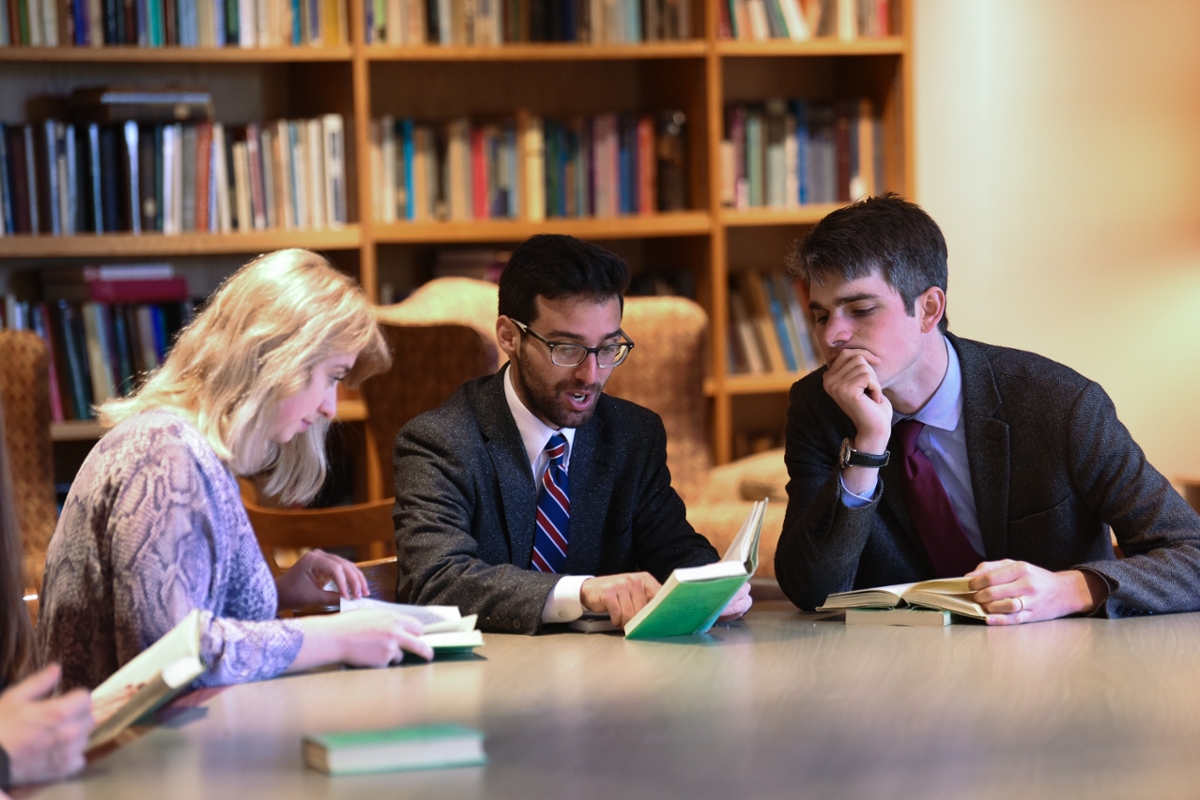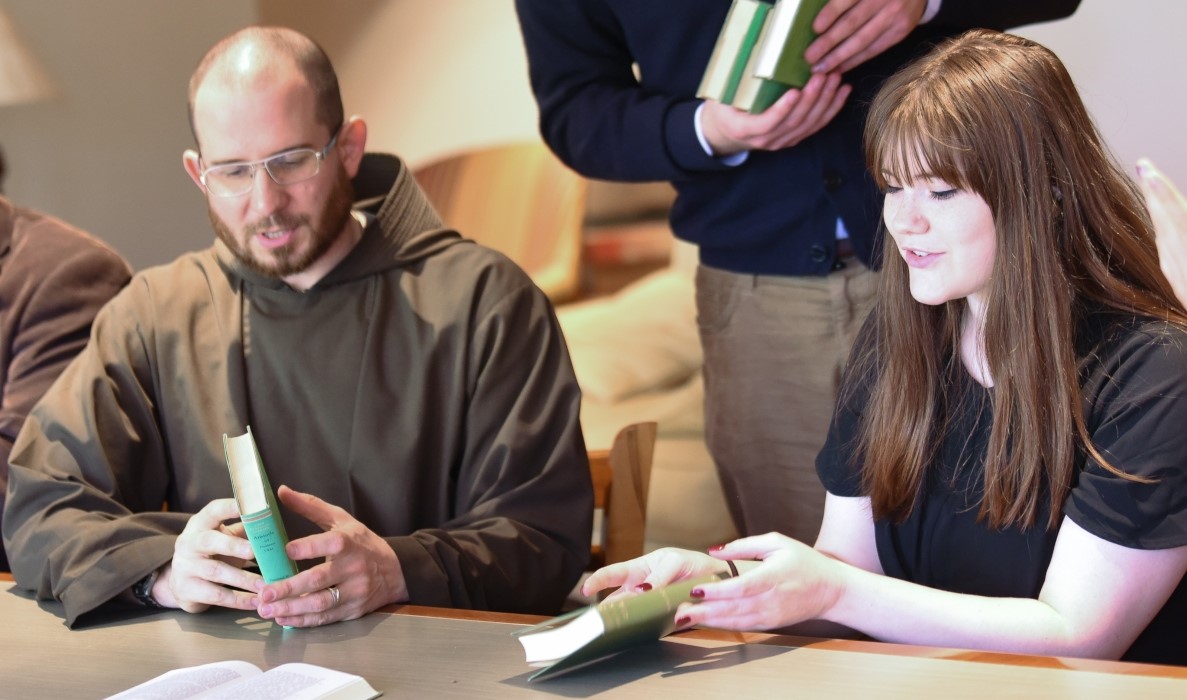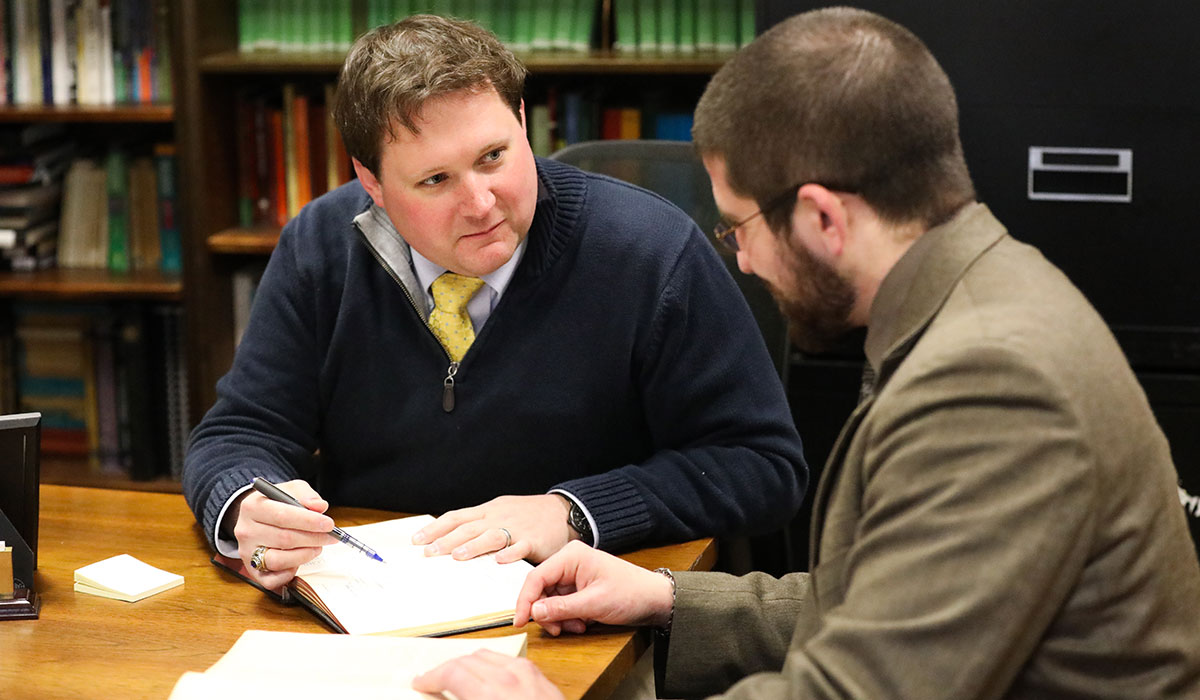Formally inaugurated in 1895 as a graduate faculty exclusively, the School of Philosophy has accepted doctoral dissertations on issues confronting every major philosophical discipline and figure in the history of philosophy.
The School shares a broad consensus on the definitive importance of two perennial questions: What is the human good? What are the ultimate principles of being and knowledge? The awareness of these questions and the study of their possible answers constitute an end and an ethos in light of which the School chooses to concentrate on the careful reading of primary sources in the history of philosophy. The School has degree programs that culminate in the Master of Arts (M.A.) and Doctoral degree (Ph.D.). As an ecclesiastical faculty, it is also authorized to grant the Licentiate in Philosophy (Ph.L.) and ecclesiastical doctorate in philosophy (Ph.D.).
-

Ph.D. in Philosophy Program Overview
Students already in possession of an M.A. in philosophy, with a thesis, or a Ph.L. degree, spend at least four additional semesters taking coursework and meeting other requirements necessary to achieve doctoral candidacy before turning to work on a dissertation.
Learn More -

Master of Arts or Licentiate in Philosophy
A minimum of eight graduate courses in select philosophical disciplines, including one course in symbolic logic and a thesis, is required before regular standing as an M.A. candidate is achieved.
Learn More -

Dual Degree Program
The dual-degree program (J.D./M.A.) is designed to equip students for a career in law by teaching them to think about the law with a depth and facility that otherwise might not be developed.
Learn More

